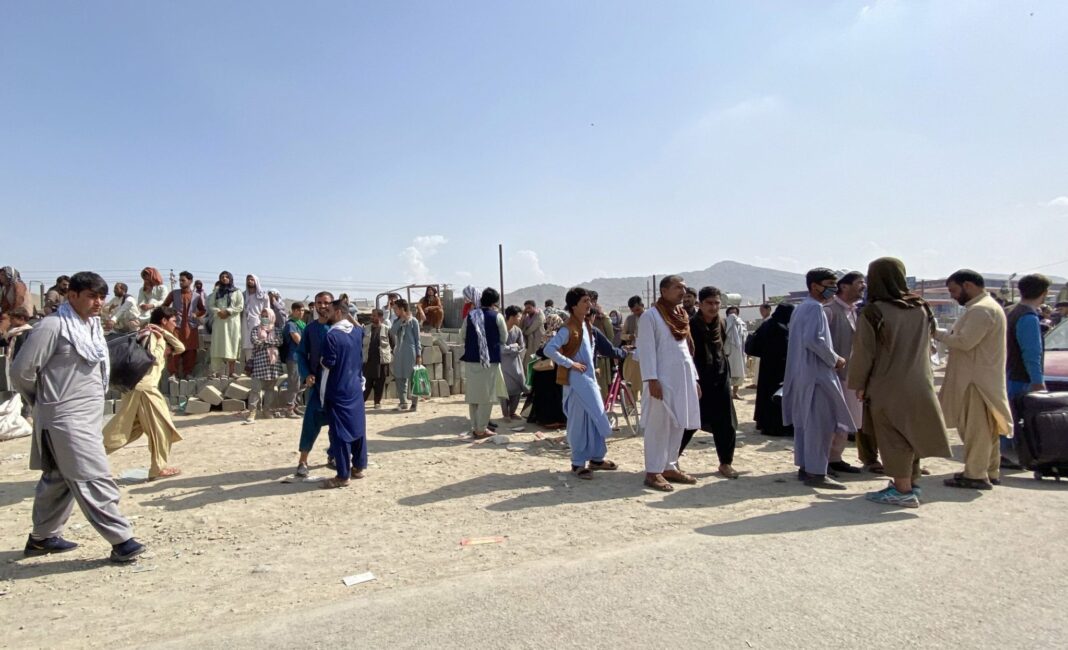By Nicola De Felice
The Taliban’s recapture of power in Afghanistan will trigger an unprecedented wave of immigration. The disturbing statements of German Interior Minister Horst Seehofer leave no doubt that soon five million Afghans will try to reach Europe.
Since 2015, the EU estimates that around 570,000 Afghans, almost exclusively young men, have applied for asylum in EU countries. In 2020, Afghan nationals were the second most common group of asylum seekers after Syrian nationals. Afghan men, for whom integration into European society is often particularly difficult, have committed hundreds of sexual assaults on European women. The arrival of millions of Afghans in Europe suggests significant social upheaval in the future.
As usual, EU member states are divided on how to prepare for the coming migration tsunami. The heads of state and government of some countries are in favour of the humanitarian obligation to take in large numbers of Afghan migrants. Others argue that it is time for Islamic countries to take responsibility. European Commission President Ursula von der Leyen said the EU has a “moral responsibility” for taking in people fleeing the Taliban, but the leaders of many EU states disagree.
In Austria, where 40,000 Afghans already live, Chancellor Sebastian Kurz has promised that his country will not take in any more people. His Interior Minister Karl Nehammer said the general ban on deportation was a pull factor for illegal immigration and only promoted the criminal business of human traffickers. Austria is thus confirming its political line, which gives priority to internal security over humanitarian security.
In Germany, which has already taken in 148,000 Afghans, Afghan migration is one of the main issues in the run-up to the Federal Elections on 26 September. Paul Ziemiak, secretary general of Chancellor Angela Merkel’s Christian Democratic Union (CDU), said Germany should not adopt the open-door policy for migrants pursued in 2015.
In France, President Macron called for a coordinated European response to prevent mass migration from Afghanistan. Marine Le Pen, a candidate in the upcoming presidential election, said France must say “no to the massive migration of Afghan refugees.”
In Greece, the left-wing government has erected a 40 km long fence with a surveillance system on the border with Turkey.
In the UK, Prime Minister Boris Johnson said he would not send back refugees, but would also not allow them to come indiscriminately from Afghanistan.
President Recep Tayyip Erdoğan declared that Turkey is not obliged to be the camp for refugees in Europe.
And what about Italy? The peninsula has been the gateway to Europe for years for migrants from Africa, Asia and the Middle East. Prime Minister Mario Draghi has invited the G20 to a summit on the situation in Afghanistan. The mayors of some major Italian cities, however, have already announced that they want to take in more refugees. With such declarations, especially in view of the new german-Austrian stance, Italy runs the risk of becoming the most popular gateway to Europe for Afghans as well.
The traffickers are already working to organize the influx through flights to Libya and then by sea to Italy, as they are already doing with the Bengalis. In Albania, Macedonia and Kosovo, there are worrying concentrations of Afghans willing to dissent in Puglia or invade by land via Slovenia to Trieste. In my opinion, this is an obvious risk for our fellow Italians.
I am well aware of the human tragedies and the obvious unease of some legitimate refugees, but the right to asylum must not continue to be, as is the case now, the Trojan horse of massive, uncontrolled and forced immigration of Islamists – and in some cases even terrorists – as has been the case so far, for example in the case of some of the jihadists, who were involved in the attacks in Paris in 2015. What must be important to our political authorities is the protection of our compatriots. The Foreign Minister should put pressure on the EU to pursue a more cautious policy in order to avoid a new migration crisis that Italy cannot cope with, and the Minister of the Interior should agree with Slovenia and Croatia on a common security policy that provides for mixed Italian-Slovenian and Italian-Croatian patrols on the southern borders of these countries.
Words in the wind? I say: prevention is better than cure.
This article was first published by CENTRO MACHIAVELLI, our partner in EUROPEAN MEDIA COOPERATION.

